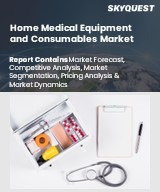
|
시장보고서
상품코드
1804499
결혼 상담 서비스 시장 : 고객 유형, 제공 채널, 고객 유형, 세션 기간, 상담 방법별 - 세계 예측(2025-2030년)Marriage Counseling Services Market by Client Type, Delivery Channel, Client Type, Session Duration, Counseling Method - Global Forecast 2025-2030 |
||||||
결혼 상담 서비스 시장의 2024년 시장 규모는 33억 4,000만 달러로 평가되었으며, 2025년에는 CAGR 9.26%로 36억 4,000만 달러로 성장하여 2030년에는 56억 8,000만 달러에 달할 것으로 예측됩니다.
| 주요 시장 통계 | |
|---|---|
| 기준 연도 2024년 | 33억 4,000만 달러 |
| 추정 연도 2025년 | 36억 4,000만 달러 |
| 예측 연도 2030년 | 56억 8,000만 달러 |
| CAGR(%) | 9.26% |
진화하는 사회 역학 및 기술 도입이 디지털 시대의 결혼 상담 서비스의 기대와 제공 모델을 어떻게 재구성하고 있는지 알아보십시오.
오늘날 결혼 상담 서비스는 사회 규범의 진화와 정신건강에 대한 인식이 높아짐에 따라 전례 없는 변화의 시대를 맞이하고 있습니다. 다양한 배경을 가진 커플과 개인들이 정서적 유대감을 강화하고, 소통의 장애를 극복하고, 인생의 전환점을 극복하기 위해 전문가의 지도를 구하고 있습니다. 인간관계의 건강이 전반적인 웰빙의 중요한 요소라는 인식이 높아지면서 현대인의 라이프스타일에 맞는 개별화된 증거 기반 상담에 대한 수요가 증가하고 있습니다.
문화적 편견을 없애는 텔레헬스의 혁신과 데이터 기반 개인화가 어떻게 커플들이 결혼 상담 서비스에 참여하는 방식에 혁명을 일으키고 있는지 알아보세요.
정신건강에 대한 낙인이 계속 사라지고 있는 가운데, 결혼 상담은 보다 건강한 관계를 구축하기 위한 적극적 조치로 주류에 받아들여지고 있습니다. 디지털 문해력의 급증과 함께 이러한 낙인찍기는 실시간 피드백 및 비동기식 지원을 지원하는 원격 치료 플랫폼의 통합에 박차를 가하고 있습니다. 또한, 모바일 앱과 디지털 평가의 보급으로 클라이언트는 공식적인 세션을 보완하는 자기 주도적 운동에 참여할 수 있게 되어, 보다 일관성 있고 적응적인 치료 여정이 가능해졌습니다.
미국의 2025년 관세 조치가 결혼정보회사 운영 비용과 서비스 제공 전략에 미치는 간접적인 영향을 분석합니다.
미국이 제정한 2025년 관세 조정 조치는 수입 기술 및 플랫폼 계약에 의존하는 결혼 상담 제공업체에 일련의 간접적인 압력을 가했습니다. 디지털 통신 인프라와 원격의료 장비에 대한 관세 인상은 운영 비용을 증폭시켜 많은 개업의들이 예산 전략을 재검토하도록 유도하고 있습니다. 이러한 조치는 치료 서비스를 직접적으로 겨냥한 것은 아니지만, 그 파급 효과로 인해 보다 비용 효율적인 솔루션의 필요성이 대두되고 있습니다.
결혼 상담의 개별화 된 경험을 정의하고, 클라이언트 프로파일 제공 모델의 세션 길이와 치료 방법의 뉘앙스를 탐구합니다.
고객의 행동에 대한 인사이트를 통해 커플과 개인 구직자 모두 서로 다른 방식으로 수요 상황을 형성하고 있음을 알 수 있습니다. 커플은 공동의 목표와 관계의 역학을 다루기 위해 공동 세션을 요청하는 경우가 많지만, 개인은 자기 탐색, 대처 전략, 미래 파트너십 준비와 같은 특정 주제에 대한 지원을 요청할 수 있습니다. 관계 유형에 관해서는 이성 간의 파트너십과 동성 간의 파트너십은 각각 고유 한 고려 사항이 있으며, 상담사는 각각에 맞는 의사 소통 및 개입 프레임 워크를 채택해야합니다.
아메리카, 유럽, 중동 및 아프리카, 아시아태평양의 결혼 상담 서비스를 형성하는 고유한 채용 패턴과 규제 상황, 문화적 요인에 초점을 맞춘 지역별 변형을 살펴보십시오.
아메리카에서는 종합적인 보험 제도와 고도의 디지털화가 결합되어 탄탄한 상담 생태계가 형성되어 있습니다. 공급자들은 기존의 상환 채널을 활용하는 한편, 가상 플랫폼을 통해 대도시 중심지 외의 지역으로 진출하기 위해 가상 플랫폼을 시도하고 있습니다. 북미의 치료에 대한 문화적 개방성은 디지털 문해력이 높아지고 현지 언어와 문화적 뉘앙스에 대응하기 위해 서비스 내용이 다양화되는 라틴아메리카의 도시 지역에서의 수요 증가에 반영되고 있습니다.
선구적인 제휴 기술 통합과 문화적 현지화 이니셔티브가 결혼 상담 솔루션의 세계 경쟁 구도를 어떻게 향상시키고 있는지에 대한 전략적 관점을 얻습니다.
결혼 상담 분야의 주요 기업들은 플랫폼의 상호 운용성을 높이고 고객 참여 도구를 강화하기 위해 기술 기업들과 전략적 파트너십을 맺고 있습니다. 결과 측정 소프트웨어와 안전한 비디오 기능을 통합함으로써 이들 기업은 증거 기반 관행과 데이터 보안에 대한 약속을 강화하고 있습니다. 학술 연구 센터와의 협력 관계도 강화되어 전문 교육 모듈 및 지속적인 전문 역량 개발 프로그램 개발이 지원되고 있습니다.
시장 포지셔닝을 강화하고, 고객 성과를 개선하고, 결혼 상담의 지속가능한 성장을 촉진하기 위해 타겟팅된 디지털 강화 프로그램, 성과 기반 모델을 도입합니다.
업계 리더들은 원활한 온라인 서비스 및 하이브리드 서비스 제공에 대응하기 위해 디지털 인프라 강화에 우선순위를 두어야 합니다. 안전하고 사용자 친화적인 플랫폼에 투자함으로써 고객 유치, 스케줄링, 후속 조치를 간소화하여 고객 유지 및 만족도를 향상시킬 수 있습니다. 이와 병행하여 CBT에서 통합적이고 감정 중심의 프레임워크에 이르기까지 다양한 치료 방식을 확장함으로써 다양한 클라이언트의 요구에 대응하고 더 높은 임상적 효과를 촉진할 수 있습니다.
이해관계자 인터뷰, 문헌인사이트, 사례 연구, 이해관계자 인터뷰, 문헌인사이트, 사례 연구를 결합한 엄격한 혼합방법론적 접근을 통해 결혼상담서비스에 대한 인사이트를 얻습니다.
본 분석을 뒷받침하는 조사는 정성적 방법과 정량적 방법을 결합한 다단계 접근법을 기반으로 합니다. 먼저, 인구 동향, 규제 환경, 기술 발전에 대한 기초적인 맥락을 파악하기 위해 2차 문헌 정보를 검토했습니다. 이러한 인사이트는 개업 치료사와 최종 고객에게 배포된 구조화된 설문지 설계에 반영되어 서비스 선호도, 애로사항, 도입 촉진요인에 대한 직접적인 피드백을 얻을 수 있었습니다.
사회적 진화, 디지털 혁신 정책에 대한 영향, 세분화 촉진요인 등 종합적인 주제를 통합하여 향후 결혼 상담 서비스의 전략적 필수 사항을 강조합니다.
주요한 견해를 종합하면, 결혼 상담 서비스는 사회적, 기술적, 경제적 힘에 의해 근본적인 진화를 겪고 있음을 알 수 있습니다. 치료의 오명을 벗고 디지털 플랫폼의 등장은 접근성을 확대하고 제공 모델을 다양화했습니다. 한편, 최근의 정책 변화는 비용 관리와 구독 기반 프레임워크의 중요성을 강조하고 있습니다.
목차
제1장 서문
제2장 조사 방법
제3장 주요 요약
제4장 시장 개요
제5장 시장 역학
제6장 시장 인사이트
- Porter's Five Forces 분석
- PESTEL 분석
제7장 미국 관세의 누적 영향 2025
제8장 결혼 상담 서비스 시장 : 클라이언트 유형별
- 커플
- 개인
제9장 결혼 상담 서비스 시장 : 제공 채널별
- 하이브리드 상담
- 대면 상담
- 온라인 상담
- 채팅 세션
- 비디오 세션
제10장 결혼 상담 서비스 시장 : 클라이언트 유형별
- 이성애 커플
- 동성애 커플
제11장 결혼 상담 서비스 시장 : 세션 기간별
- 장기 상담
- 단기 상담
제12장 결혼 상담 서비스 시장 : 상담 방법별
- 인지 행동 치료
- 감정 중심 치료
- 통합적 상담
- 해결 중심 치료
제13장 아메리카의 결혼 상담 서비스 시장
- 미국
- 캐나다
- 멕시코
- 브라질
- 아르헨티나
제14장 유럽, 중동 및 아프리카의 결혼 상담 서비스 시장
- 영국
- 독일
- 프랑스
- 러시아
- 이탈리아
- 스페인
- 아랍에미리트
- 사우디아라비아
- 남아프리카공화국
- 덴마크
- 네덜란드
- 카타르
- 핀란드
- 스웨덴
- 나이지리아
- 이집트
- 튀르키예
- 이스라엘
- 노르웨이
- 폴란드
- 스위스
제15장 아시아태평양의 결혼 상담 서비스 시장
- 중국
- 인도
- 일본
- 호주
- 한국
- 인도네시아
- 태국
- 필리핀
- 말레이시아
- 싱가포르
- 베트남
- 대만
제16장 경쟁 구도
- 시장 점유율 분석, 2024
- FPNV 포지셔닝 매트릭스, 2024
- 경쟁 분석
- 7 Cups of Tea Co.
- Amor Family Therapy Prof. Corp.
- BetterHelp, Inc.
- Cedar Counseling & Wellness
- ClearMind, Inc.
- Couples Therapy, Inc.
- Mind Voyage
- HealthTap, Inc.
- Lifeworks Counseling LLC by TELUS Health
- Manastha Health Solutions Private Limited
- Growing Self, LLC
- Empathia Counseling LLC
- OurRelationship, LLC
- ALLY Counseling & Psychological Services, LLC
- Relationship Rescue, Inc.
- SALT Marriage Therapy, LLC
- Talkspace, Inc.
- The Couples Center, Inc.
- The Couples Institute
- The Gottman Institute, Inc.
- The Therapy Group LLC
- TherapyDen, LLC
- Thiveworks Administrative Services, LLC
- WebTribes Inc.
- Amwell, Inc.
제17장 리서치 AI
제18장 리서치 통계
제19장 리서치 컨택트
제20장 리서치 기사
제21장 부록
KSM 25.09.11The Marriage Counseling Services Market was valued at USD 3.34 billion in 2024 and is projected to grow to USD 3.64 billion in 2025, with a CAGR of 9.26%, reaching USD 5.68 billion by 2030.
| KEY MARKET STATISTICS | |
|---|---|
| Base Year [2024] | USD 3.34 billion |
| Estimated Year [2025] | USD 3.64 billion |
| Forecast Year [2030] | USD 5.68 billion |
| CAGR (%) | 9.26% |
Discover how evolving social dynamics and technology adoption are reshaping expectations and delivery models of marriage counseling services in the digital age
Today, marriage counseling services navigate an unprecedented era of transformation driven by evolving social norms and heightened mental health awareness. Couples and individuals across diverse backgrounds increasingly seek professional guidance to strengthen emotional bonds, address communication barriers, and navigate life transitions. The rising recognition of relationship wellness as a critical component of overall well-being has propelled demand for personalized, evidence-based counseling that adapts to modern lifestyles.
In addition to demographic shifts, technological innovation has radically altered the way therapeutic support is delivered and experienced. Traditional face-to-face sessions now coexist with online platforms and hybrid models that combine digital convenience with in-person rapport. This convergence enables greater accessibility for clients who balance demanding schedules or reside in remote areas, while fostering new forms of client engagement through interactive tools and real-time feedback.
Moreover, the professional community has responded by broadening methodological approaches and investing in specialized training programs. Cognitive Behavioral Therapy, Emotionally Focused Therapy, Integrative Counseling, and Solution-Focused Therapy are being tailored to address the unique dynamics of same-sex partnerships as well as the nuanced needs of individual clients. Consequently, the contemporary counseling landscape reflects a commitment to inclusivity, innovation, and outcomes-driven practice that resonates with today's relationship challenges.
Uncover how cultural destigmatization telehealth innovations and data-driven personalization are revolutionizing the way couples engage with marriage counseling services
As stigma around mental health continues to dissipate, marriage counseling has gained mainstream acceptance as a proactive step toward healthier relationships. This destigmatization, combined with a surge in digital literacy, has fueled the integration of teletherapy platforms that accommodate real-time feedback and asynchronous support. Moreover, the proliferation of mobile apps and digital assessments has empowered clients to engage in self-guided exercises that complement formal sessions, creating a more cohesive and adaptive therapeutic journey.
Furthermore, hybrid delivery frameworks have emerged as a key enabler of continuity and flexibility. By seamlessly blending in-person consultations with remote follow-ups, practitioners can maintain therapeutic momentum even when scheduling conflicts or geographic barriers arise. This model has proven particularly effective for working professionals and clients in underserved regions, ensuring consistent access to care without compromising on the depth of interpersonal connection.
In addition, data analytics are being harnessed to refine client matching algorithms and personalize treatment pathways. Through the systematic collection of outcome metrics and feedback loops, providers can optimize intervention strategies over time. Consequently, the industry is moving toward a more agile, data-informed approach that not only addresses presenting issues but also anticipates emerging needs.
Analyze the indirect consequences of the United States' 2025 tariff measures on the operational costs and service delivery strategies of marriage counseling providers
The 2025 tariff adjustments enacted by the United States have introduced a series of indirect pressures on marriage counseling providers who rely on imported technology and platform subscriptions. Increased duties on digital communication infrastructure and telehealth equipment have amplified operational costs, prompting many practitioners to reevaluate their budgeting strategies. While these measures were not targeting therapeutic services directly, their ripple effects have created a need for more cost-efficient solutions.
Consequently, providers are exploring localized technology partnerships to mitigate import expenses and secure favorable licensing arrangements. Some organizations are negotiating bulk purchasing agreements or transitioning to domestically developed software that offers comparable functionality at a lower total cost of ownership. At the same time, subscription-based models have gained traction as they allow for predictable expense planning and mitigate the impact of one-time tariff spikes.
In addition, this environment has underscored the importance of service diversification. By introducing tiered offerings, such as group workshops and self-guided digital modules, counseling practices can offset elevated equipment costs through scalable revenue streams. Ultimately, the cumulative impact of U.S. tariff measures has accelerated the shift toward more agile, partnership-oriented, and subscription-driven service models within the marriage counseling domain.
Explore the nuances of client profiles delivery models session lengths and therapeutic methodologies that define personalized marriage counseling experiences
Insight into client behavior reveals that both couples and individual seekers are shaping the demand landscape in distinct ways. Couples often pursue joint sessions to address shared goals and relational dynamics, whereas individuals may seek targeted support for self-exploration, coping strategies, or preparation for future partnership. When it comes to relationship type, heterosexual and same-sex partnerships each present unique considerations, compelling counselors to adopt tailored communication and intervention frameworks.
Meanwhile, the proliferation of hybrid counseling blends the trust of in-person interactions with the convenience of online chat and video sessions. Many clients appreciate the flexibility of chat-based exchanges for quick check-ins, while video consultations facilitate more nuanced emotional resonance. This multi-channel approach ensures that therapists can maintain engagement regardless of client schedules or comfort levels.
Session duration further influences treatment pathways, with short-term engagements offering focused, goal-oriented interventions and long-term commitments supporting deep-dive exploration and sustained behavioral change. Methodologically, the field is enriched by a diverse palette of therapeutic modalities. Cognitive Behavioral Therapy targets thought patterns and behaviors, Emotionally Focused Therapy enhances attachment bonds, Integrative Counseling weaves together multiple theoretical strands, and Solution-Focused Therapy prioritizes pragmatic goal attainment. Together, these segmentation insights illuminate the multi-dimensional nature of client needs and highlight the imperative for counselors to customize both format and modality.
Dive into regional variations highlighting unique adoption patterns regulatory landscapes and cultural factors that shape marriage counseling services across the Americas EMEA and Asia-Pacific
In the Americas, the convergence of comprehensive insurance frameworks and high digital adoption has catalyzed a robust counseling ecosystem. Providers leverage established reimbursement channels while experimenting with virtual platforms to broaden their footprint beyond metropolitan centers. Cultural openness to therapy in North America is mirrored by growing urban demand across Latin America, where digital literacy is on the rise and service offerings are diversifying to accommodate local language and cultural nuances.
Across Europe, Middle East, and Africa, regulatory heterogeneity shapes market maturity. Western Europe's stringent data protection standards coexist with the Middle East's emerging telehealth regulations, both influencing how counselors structure their service delivery. In EMEA, cultural considerations around family privacy and social stigma necessitate tailored outreach strategies and multilingual content. Nonetheless, digital penetration continues to expand, laying the groundwork for scalable online and hybrid models that respect regional sensitivities.
In Asia-Pacific, heightened awareness of mental health, driven by urbanization and social media discourse, is unlocking new opportunities. While major urban centers rapidly adopt digital counseling tools, underserved rural areas face connectivity constraints and limited practitioner availability. To bridge this divide, local collaborations are forming between traditional counseling centers and telehealth platforms, enabling a gradual yet meaningful shift toward accessible, culturally attuned services.
Gain strategic perspectives on how pioneering alliances technology integrations and cultural localization initiatives are elevating the competitive landscape of marriage counseling solutions globally
Leading organizations within the marriage counseling sector are forging strategic partnerships with technology firms to enhance platform interoperability and enrich client engagement tools. By integrating outcome measurement software and secure video capabilities, these companies reinforce their commitment to evidence-based practice and data security. Collaboration with academic research centers has also intensified, supporting the development of specialized training modules and continuous professional development programs.
Innovation is further expressed through the expansion of digital ecosystems that encompass mobile applications, online assessments, and self-help resources. Emotional analytics and sentiment-detection algorithms are being piloted to refine real-time therapeutic interventions and gauge progress with greater precision. At the same time, service providers are broadening their geographical reach through franchise models and strategic alliances with insurance networks, thereby improving accessibility and streamlining reimbursement processes.
Moreover, leadership in the industry is marked by investments in culturally sensitive content and multilingual capabilities. By localizing therapy modules and employing practitioners fluent in regional dialects, top companies are positioning themselves as trusted partners for diverse client populations. Collectively, these strategic moves are reshaping the competitive environment and setting new standards for comprehensive, client-centric service delivery.
Implement targeted digital enhancements specialized programming and outcome-based models to strengthen market positioning improve client outcomes and drive sustainable growth in marriage counseling
Industry leaders should prioritize the enhancement of digital infrastructure to accommodate seamless online and hybrid service offerings. Investing in secure, user-friendly platforms will streamline client intake, scheduling, and follow-up, thereby improving retention and satisfaction. In parallel, expanding the array of therapeutic modalities-ranging from CBT to integrative and emotion-focused frameworks-will cater to diverse client needs and foster greater clinical efficacy.
Furthermore, organizations can differentiate themselves by developing specialized programs for same-sex couples and individual clients, ensuring that content and delivery resonate authentically with each demographic. Collaborations with insurers and employee assistance programs can unlock new channels for volume-based engagement while reinforcing the value proposition of preventive mental health support.
Finally, adopting outcome-based pricing models and leveraging data analytics to demonstrate efficacy will strengthen both client trust and payer relationships. By continuously measuring key performance indicators and iteratively refining service protocols, providers can enhance treatment outcomes while maintaining operational agility. This combination of tech investment, service diversification, and outcome transparency will position industry leaders to capitalize on emerging growth opportunities.
Understand the rigorous mixed-methods approach combining stakeholder interviews surveys literature review and case studies that informs these marriage counseling service insights
The research underpinning this analysis is built on a multi-phase approach that combines qualitative and quantitative methods. Initially, secondary literature sources were reviewed to establish foundational context around demographic trends, regulatory environments, and technological advancements. These insights informed the design of a structured survey distributed to practicing therapists and end-clients, yielding direct feedback on service preferences, pain points, and adoption drivers.
Subsequently, in-depth interviews and focus-group workshops were conducted with key stakeholders, including counseling practitioners, platform developers, and industry associations. This qualitative exploration provided rich, contextualized understanding of operational challenges, innovation roadmaps, and emerging best practices. Additionally, case studies of leading providers offered real-world examples of successful digital integration and segmentation strategies.
Finally, all findings were triangulated through iterative validation rounds with subject-matter experts to ensure accuracy and relevance. Statistical analysis of survey data and thematic coding of qualitative inputs delivered a comprehensive and balanced perspective. This rigorous methodology ensures that the insights presented are both evidence-based and actionable for decision-makers in the marriage counseling services domain.
Synthesize the overarching themes of social evolution digital innovation policy impacts and segmentation drivers to highlight the strategic imperatives for marriage counseling services moving forward
In synthesizing the key observations, it becomes clear that marriage counseling services are undergoing a fundamental evolution driven by social, technological, and economic forces. The destigmatization of therapy and the rise of digital platforms have expanded access and diversified delivery models, while recent policy changes have prompted greater emphasis on cost management and subscription-based frameworks.
Segmentation insights underscore the importance of tailoring services to the needs of couples versus individuals, accounting for relationship type, preferred channel, session duration, and therapeutic approach. Regional analysis reveals that market maturity varies significantly across the Americas, EMEA, and Asia-Pacific, necessitating culturally attuned engagement strategies and localized partnerships.
Looking ahead, companies that invest in agile digital infrastructures, embrace outcome measurement, and cultivate specialized programs for diverse client groups will be best positioned to lead. The combination of robust technology integration, evidence-based methodologies, and strategic alliances will define competitive advantage in this dynamic sector. Ultimately, the capacity to adapt swiftly to emerging trends and client expectations will determine success in the evolving marriage counseling landscape.
Table of Contents
1. Preface
- 1.1. Objectives of the Study
- 1.2. Market Segmentation & Coverage
- 1.3. Years Considered for the Study
- 1.4. Currency & Pricing
- 1.5. Language
- 1.6. Stakeholders
2. Research Methodology
- 2.1. Define: Research Objective
- 2.2. Determine: Research Design
- 2.3. Prepare: Research Instrument
- 2.4. Collect: Data Source
- 2.5. Analyze: Data Interpretation
- 2.6. Formulate: Data Verification
- 2.7. Publish: Research Report
- 2.8. Repeat: Report Update
3. Executive Summary
4. Market Overview
- 4.1. Introduction
- 4.2. Market Sizing & Forecasting
5. Market Dynamics
- 5.1. Growing demand for culturally competent counseling services for multicultural relationships
- 5.2. Development of specialized counseling programs addressing digital addiction and partner communication
- 5.3. Rising popularity of virtual marriage counseling platforms leveraging AI-driven session personalization
- 5.4. Integration of holistic wellness approaches including mindfulness and yoga into couple therapy programs
- 5.5. Adoption of subscription-based models for ongoing marital support and relationship maintenance
- 5.6. Utilization of data analytics and outcome tracking tools to demonstrate counseling efficacy and ROI
- 5.7. Implementation of virtual reality exposure therapy modules within couples counseling to address conflict resolution skills
- 5.8. Collaboration between marriage therapists and family law professionals to offer coordinated counseling and legal guidance for couples in transition
- 5.9. Partnerships between marriage counselors and fertility clinics to provide integrated support for couples facing reproductive challenges
6. Market Insights
- 6.1. Porter's Five Forces Analysis
- 6.2. PESTLE Analysis
7. Cumulative Impact of United States Tariffs 2025
8. Marriage Counseling Services Market, by Client Type
- 8.1. Introduction
- 8.2. Couples
- 8.3. Individual
9. Marriage Counseling Services Market, by Delivery Channel
- 9.1. Introduction
- 9.2. Hybrid Counseling
- 9.3. In-Person Counseling
- 9.4. Online Counseling
- 9.4.1. Chat Sessions
- 9.4.2. Video Sessions
10. Marriage Counseling Services Market, by Client Type
- 10.1. Introduction
- 10.2. Heterosexual Couples
- 10.3. Same-Sex Couples
11. Marriage Counseling Services Market, by Session Duration
- 11.1. Introduction
- 11.2. Long Term Counseling
- 11.3. Short Term Counseling
12. Marriage Counseling Services Market, by Counseling Method
- 12.1. Introduction
- 12.2. Cognitive Behavioral Therapy
- 12.3. Emotion Focused Therapy
- 12.4. Integrative Counseling
- 12.5. Solution Focused Therapy
13. Americas Marriage Counseling Services Market
- 13.1. Introduction
- 13.2. United States
- 13.3. Canada
- 13.4. Mexico
- 13.5. Brazil
- 13.6. Argentina
14. Europe, Middle East & Africa Marriage Counseling Services Market
- 14.1. Introduction
- 14.2. United Kingdom
- 14.3. Germany
- 14.4. France
- 14.5. Russia
- 14.6. Italy
- 14.7. Spain
- 14.8. United Arab Emirates
- 14.9. Saudi Arabia
- 14.10. South Africa
- 14.11. Denmark
- 14.12. Netherlands
- 14.13. Qatar
- 14.14. Finland
- 14.15. Sweden
- 14.16. Nigeria
- 14.17. Egypt
- 14.18. Turkey
- 14.19. Israel
- 14.20. Norway
- 14.21. Poland
- 14.22. Switzerland
15. Asia-Pacific Marriage Counseling Services Market
- 15.1. Introduction
- 15.2. China
- 15.3. India
- 15.4. Japan
- 15.5. Australia
- 15.6. South Korea
- 15.7. Indonesia
- 15.8. Thailand
- 15.9. Philippines
- 15.10. Malaysia
- 15.11. Singapore
- 15.12. Vietnam
- 15.13. Taiwan
16. Competitive Landscape
- 16.1. Market Share Analysis, 2024
- 16.2. FPNV Positioning Matrix, 2024
- 16.3. Competitive Analysis
- 16.3.1. 7 Cups of Tea Co.
- 16.3.2. Amor Family Therapy Prof. Corp.
- 16.3.3. BetterHelp, Inc.
- 16.3.4. Cedar Counseling & Wellness
- 16.3.5. ClearMind, Inc.
- 16.3.6. Couples Therapy, Inc.
- 16.3.7. Mind Voyage
- 16.3.8. HealthTap, Inc.
- 16.3.9. Lifeworks Counseling LLC by TELUS Health
- 16.3.10. Manastha Health Solutions Private Limited
- 16.3.11. Growing Self, LLC
- 16.3.12. Empathia Counseling LLC
- 16.3.13. OurRelationship, LLC
- 16.3.14. ALLY Counseling & Psychological Services, LLC
- 16.3.15. Relationship Rescue, Inc.
- 16.3.16. SALT Marriage Therapy, LLC
- 16.3.17. Talkspace, Inc.
- 16.3.18. The Couples Center, Inc.
- 16.3.19. The Couples Institute
- 16.3.20. The Gottman Institute, Inc.
- 16.3.21. The Therapy Group LLC
- 16.3.22. TherapyDen, LLC
- 16.3.23. Thiveworks Administrative Services, LLC
- 16.3.24. WebTribes Inc.
- 16.3.25. Amwell, Inc.



















